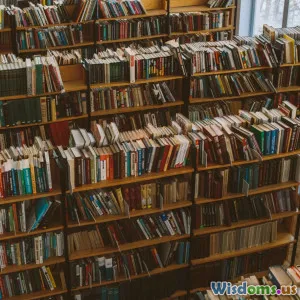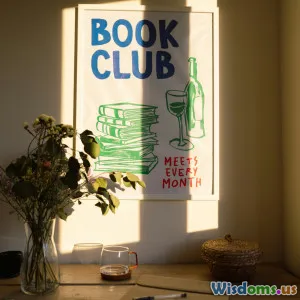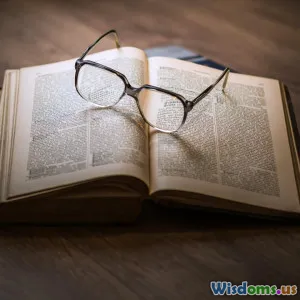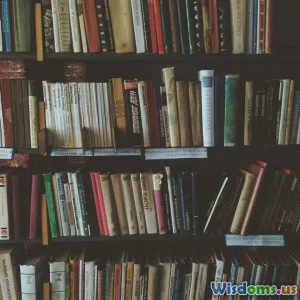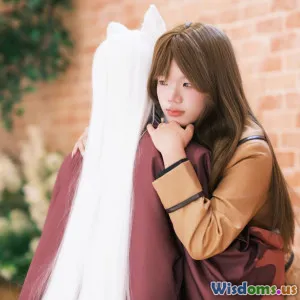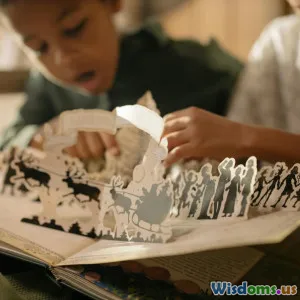
Predicting the Next Big Trends in Fantasy Literature for Readers
8 min read Uncover emerging trends shaping the future of fantasy literature and discover what readers can expect next. (0 Reviews)
Predicting the Next Big Trends in Fantasy Literature for Readers
Fantasy literature continually captivates readers by transporting them to enchanting worlds filled with magic, heroes, and epic adventures. As the genre evolves, it reflects shifts not only in storytelling but also in cultural, social, and technological dimensions. Readers eager to explore new realms and fresh narratives stand to benefit greatly from understanding emerging trends shaping fantasy literature's future. In this article, we’ll delve deep into what’s coming next for fantasy readers — from innovative themes to rising authorial voices, and transforming publishing landscapes.
Enchanting Diversity: Broadening the Horizons of Fantasy
One of the most significant shifts in fantasy literature is its growing embrace of diverse voices and cultures. Historically, high-fantasy stories have often drawn heavily from Eurocentric medieval settings; however, the democratization of publishing and the rise of global readership have already initiated a change.
Why does this matter? Because representation enriches storytelling by offering fresh mythologies, perspectives, and cultural frameworks. For instance, authors like N.K. Jemisin have brought African diaspora culture and complex societal issues into fantasy through works like The Broken Earth trilogy. Similarly, R.F. Kuang’s The Poppy War explores Chinese history and mythology, deeply grounding fantasy in real-world contexts.
According to a 2023 report from the Association of American Publishers, books featuring protagonists of diverse ethnic backgrounds saw a 20% increase in sales over the past two years, signaling that readers are actively seeking out these stories. This trend is expected to continue, encouraging authors to explore underrepresented mythologies—from West African folklore to indigenous North and South American traditions—offering readers compelling, authentic narratives.
Environmentalism and Eco-Fantasy
As climate change and environmental concerns intensify worldwide, fantasy literature is also reflecting these anxieties and hopes through the rising subgenre of eco-fantasy. This trend envisions worlds where nature plays a central role—not just as a backdrop but as a living, breathing entity with agency.
Authors are blending traditional fantasy elements with environmental themes, crafting narratives where healing the land or coexisting harmoniously with magical ecosystems becomes a vital plotline. A pertinent example is The Overstory by Richard Powers, though more literary, inspiring eco-conscious fantasy works that focus on respect for nature and cautionary tales about exploiting magic or natural resources.
Fantasy readers looking for timely stories will likely encounter more works where the natural world is central. Additionally, the concept of animism—where plants, animals, and even natural features are imbued with spirits—has begun integrating more deeply into popular fantasy narratives, redefining magic systems and character motivations.
Genre-Blending: Where Fantasy Meets Science and Other Genres
Fantasy’s boundaries continue to blur, with authors merging it with other genres to create innovative and unexpected storytelling frameworks. The success of series like The Broken Earth blends fantasy, science fiction, and dystopian elements, highlighting a yearning for novel experiences.
Consider the rise of “grimdark” fantasy infused with psychological horror or urban fantasy stories that incorporate noir and thriller components. Such hybridization keeps fantasy fresh by continuously challenging traditional genre conventions. For readers, this means a wider spectrum of stories—from magical realism intertwined with futuristic tech to steampunk adventures grounded in speculative history.
Data from Goodreads shows a significant uptick in user-identified cross-genre books tagged under ‘fantasy + sci-fi’ in the last five years. This indicates that readers are increasingly receptive to these hybrid narratives that blend magical and technological innovation.
Inclusive Heroism: Redefining Protagonists
Another critical trend on the horizon is the evolution of heroism in fantasy stories. The once-common trope of the white, typically male, heroic figure is being replaced by multifaceted, morally complex protagonists that resonate more deeply with today’s readers.
Modern fantasy protagonists may grapple with mental health issues, systemic injustice, or ambiguous morality, lending authenticity and relatability. For example, the characters in Leigh Bardugo’s Six of Crows series embody inclusivity, with diverse gender identities and backgrounds while contending with trauma and ethical dilemmas.
This shift accomplishes two things: it reflects societal changes demanding more authentic representation, and it offers readers protagonists who embody resilience in genuinely human ways rather than idealized archetypes. The result is storytelling that engages the reader’s empathy and critical thinking.
Technology's Impact on Fantasy Publishing and Consumption
Finally, technological advances are reshaping how fantasy literature reaches readers and how readers experience these novels. The rise of digital self-publishing platforms enables new authors to break into the market, offering experimental stories that might be overlooked by traditional publishing.
Additionally, interactive ebooks and augmented reality (AR) capabilities are beginning to make their mark. Imagine fantasy books where maps, character art, or spell systems dynamically come to life on your device, enriching immersion beyond printed pages. Platforms like Wattpad have fostered online communities that can provide immediate feedback and build fandoms before books hit print, changing how trends are born.
These advances democratize storytelling and usher in new literary expressions, signaling a future where the boundaries between reading, gaming, and social interaction may blur into unique, hybrid experiences.
Conclusion: The Magical Future Awaits
Predicting the exact trajectory of a genre as expansive and adaptive as fantasy is impossible, but we can confidently anticipate that diversity, environmental consciousness, genre hybridity, inclusive characterization, and technology integration will be key pillars. Readers championing these trends stand to find stories that are not only entertaining but also reflective of our global, interconnected, and complex world.
To truly enjoy the next era of fantasy, readers should stay curious about voices emerging from diverse cultures, explore novels blending imaginative magic with real-world issues, and embrace innovative publishing formats. As J.R.R. Tolkien once wrote, “Not all those who wander are lost.” In the evolving fantasy landscape, wandering readers will discover a trove full of fresh wonder and meaningful escapades.
References
- Association of American Publishers, 2023 Diversity Sales Report
- Goodreads Tag Data Analytics (2019-2024)
- Jemisin, N.K. The Broken Earth trilogy
- Kuang, R.F. The Poppy War
- Bardugo, Leigh. Six of Crows
- Powers, Richard. The Overstory
Rate the Post
User Reviews
Popular Posts










